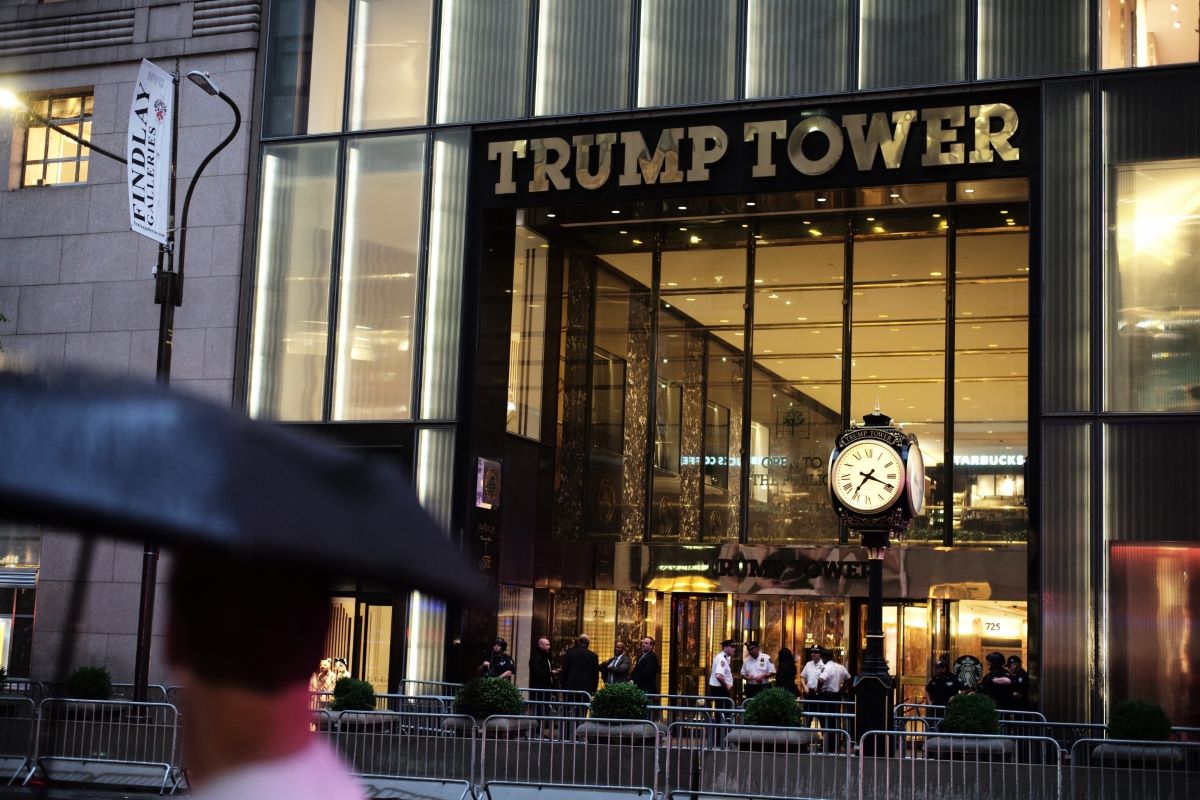Russia ready for equal dialogue with US: Kremlin
Russia is open to equal dialogue with the United States and is waiting for a signal from Washington, Kremlin Spokesman Dmitry Peskov said on Thursday.
Both Weisselberg and lawyers for the Trump Organization pleaded not guilty

Trump Towers. IANS
Donald Trump’s company and its finance chief were charged on Thursday in what prosecutors called a “sweeping and audacious” tax fraud scheme in which the executive collected more than $1.7 million in secret compensation.
Trump himself was not charged with any wrongdoing, but prosecutors noted he signed some of the checks at the center of the case. And one top prosecutor said the 15-year scheme was “orchestrated by the most senior executives” at the Trump Organization.
Advertisement
According to the indictment, from 2005 through this year, the Trump Organization and Chief Financial Officer Allen Weisselberg cheated tax authorities by conspiring to pay senior executives off the books by way of lucrative fringe benefits and other means.
Advertisement
Weisselberg alone was accused of defrauding the federal government, state and city out of more than $900,000 in unpaid taxes and undeserved tax refunds.
The most serious charge against Weisselberg, grand larceny, carries five to 15 years in prison. The tax fraud charges against the company are punishable by a fine of double the amount of unpaid taxes, or $250,000, whichever is larger.
The 73-year-old Weisselberg has intimate knowledge of the Trump Organization’s financial dealings from nearly five decades at the company. The charges against him could enable prosecutors to pressure him to cooperate with the investigation and tell them what he knows.
Both Weisselberg and lawyers for the Trump Organization pleaded not guilty. Weisselberg was ordered to surrender his passport and was released without bail, leaving the courthouse without comment.
In a statement, Trump condemned the case as a “political Witch Hunt by the Radical Left Democrats.” Weisselberg’s lawyers said he will “fight these charges.”
The case is being led by Manhattan District Attorney Cyrus Vance Jr. and New York Attorney General Letitia James, both Democrats.
The news comes as Trump has been more seriously discussing a possible comeback run for president in 2024. He has ramped up his public appearances, including holding his first rallies since leaving the White House.
In announcing the grand jury indictment, Carey Dunne, a top deputy in Vance’s office, said: “Politics has no role in the jury chamber, and I can assure you it had no role here.”
According to the indictment, Weisselberg paid rent on his Manhattan apartment with company checks and directed the company to pay for his utility bills and parking, too.
The company also paid for private school tuition for Weisselberg’s grandchildren with checks bearing Trump’s signature, as well as for Mercedes cars driven by Weisselberg and his wife, and gave him cash to hand out tips around Christmas.
Such perks were listed on internal Trump company documents as being part of Weisselberg’s compensation but were not included on his W-2 forms or otherwise reported, and the company did not withhold taxes on their value, prosecutors said.
Trump’s company also issued checks, at Weisselberg’s request, to pay for personal expenses and upgrades to his homes and an apartment used by one of his sons, such as new beds, flat-screen TVs, carpeting and furniture, prosecutors said.
Michael Cohen, the former Trump lawyer who has been cooperating with Vance’s investigation, wrote in his book “Disloyal” that Trump and Weisselberg were “masters at allocating expenses that related to non-business matters and finding a way to categorize them so they weren’t taxed.”
Cohen said Weisselberg was the one who decided how to secretly reimburse him for a $130,000 payment to Stormy Daniels, the porn star.
Advertisement